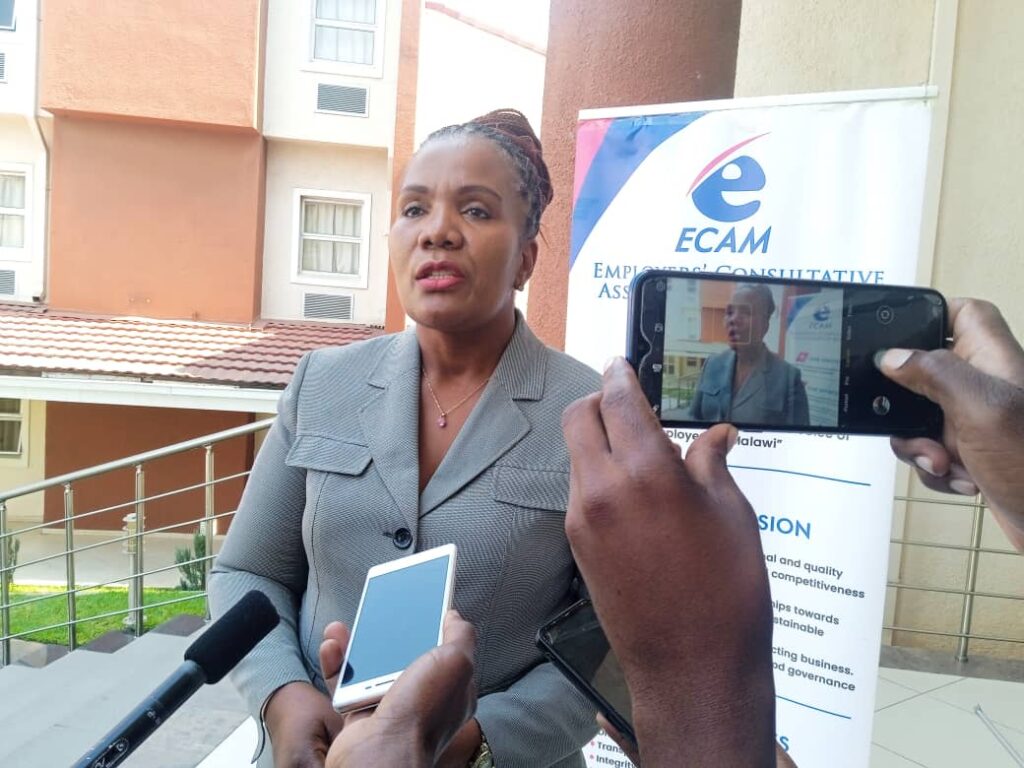
ECAM decries the increasing cases of litigation from the employees
Published on August 2, 2024 at 10:14 AM by Robert Ngwira
By Steven Godfrey Mkweteza
Employers Consultative Association of Malawi (ECAM) has expressed concern with the growing numbers of litigation cases from the employees, a development which it says is contributing to closures of many companies.
President for the employment consultative body, Annie Chavula said this in Blantyre on Wednesday at the start of a two day long practical workshop on handling of disciplinary processes and no-fault dismissals that mitigate litigation.
Chavula noted that many companies in the country are struggling to survive due to the huge sums of money they pay due to litigation.
“It is worrisome nowadays to see the increasing cases of litigation that companies are getting from their employees after they have been faulted. This is making difficulties for some companies to pay the costs. Therefore, they opt just to close shop or downscale inorder to survive,” she said.
According to Chavula, the costs of litigation at the industrial courts in the country are very huge as compared to other countries, a development which she says contribute to many companies failure to pay.
Chavula noted that information gap between the practitioners and the judiciary systems is the main contributing factor to the rising cases of litigations.
“Some employers and employees do not understand what the employment and labour relations Acts stipulates. This contributes to the rising cases of defaults and litigations,” she said.
Chavula therefore, said her association has embarked on trainings of the duty-bears, aiming at brighing the information gap and bring about sanity at the workplace.
Speaking in a seperate media interview, chairperson of the industrial relations courts( IRC) Austin Msowoya said he commissioned an audit in 2023 which showed that Blantyre was recording a total of 4000 to 5000 litigation cases.
Msowoya said most of the cases were stagnant as they were registered way back in 2004.
“But we have now introduced a strategy to clear out the outstanding cases and leave only the active cases. We ask the litigants to know if they are interested to still proceed with the cases or not,” he said.
According to Msowoya, the robust interaction among the stakeholders has so far helped to clear out the case backlog and reduced the grievances.
“We used to hear sentiments that perhaps courts do favour the employees so that employers pay hugely to the compliant but now the trend has been shifted due to various interventions,” he said.
Human resources officer for ESCOM, Gilbert Nyimbiri described the training as an opener, saying it will go along the way to to reduce cases of litigations and bring about sanity at the workplace.
“There must be a win-win situation between the employers and employees to make the workplace a conductive environment,” he said


